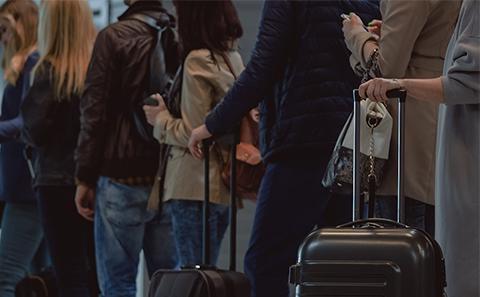Opinion polling: still key in elections
Highlighting the importance of opinion polls worldwide
Political polling plays a crucial role in shaping the narrative of election campaigns, influencing party strategies, broadcasting regulation, media coverage, and the vote choices of citizens.
Public confidence in the accuracy of polls in the UK was damaged by their collective failure to predict the outcome of the 2015 general election, while the outcome of the 2016 US presidential election also prompted debate over polling accuracy.
University of Southampton research has made important contributions towards our understanding of the performance of election opinion polling in the UK, and across the world. We have influenced opinion polling methodology, reporting of polls in the media, and the regulation of political polling in the UK.
A study published in Nature Human Behaviour, led by Professor Will Jennings at the University of Southampton and Professor Christopher Wlezien from the University of Texas at Austin, showed that claims of a crisis in the accuracy of election polling are false and that there is no evidence to suggest that poll errors have increased over time.
The study focussed on more than 30,000 national polls from 351 general elections in 45 countries over the period between 1942 and 2017.
Despite a hugely volatile and uncertain political context, the polls performed remarkably well in the 2019 general election, which is testament to the efforts of the UK polling industry to learn lessons from past elections.
Pre-election polls have sought to measure the general public’s preferences for candidates or parties for almost three quarters of a century. While the wording of survey questions can differ across countries, these polls are used to forecast election results.
The study confirmed that the average absolute error of pre-election polls has fluctuated over the years but has not increased. When polling was first introduced during the 1940s and 1950s, the mean error was 2.1 per cent. This average was also consistent during the 1960s and 1970s and has been two per cent since 2000.
Moreover, in countries where there is regular pre-election polling over a period of almost forty years, the evidence is that polls have become more accurate, not less.
After much debate over the performance of the UK polling industry in recent years, the polls in the 2019 general election defied the naysayers and were among the most accurate on record since polling began.
The predicted vote share reported in the final polls of the campaign by the BBC poll tracker were very close to the actual result, with an average error of less than one per cent.
Poll accuracy (GB polls)
| Party | Predicted result | Actual result |
|---|---|---|
| Conservatives | 43% | 45% |
| Labour | 33% | 33% |
| Liberal Democrats | 12% | 12% |
| SNP | 4% | 4% |
| Greens | 3% | 3% |
| Brexit | 3% | 2% |
Will said: “It is understandable that people tend to focus on high profile polling misses, and shock election results, but the evidence dispels the claim that polling is any more inaccurate today that at any previous point in history.”
Related Staff Member
You may also be interested in

Migration and international students
Informing the debate by providing accurate migration data

Next stop, the future
Providing evidence-based solutions for improving rail networ

Putting vulnerable people on the map
Cutting-edge spatial data is giving people their basic human rights
.JPG_SIA_JPG_fit_to_width_SQUARE.jpg)